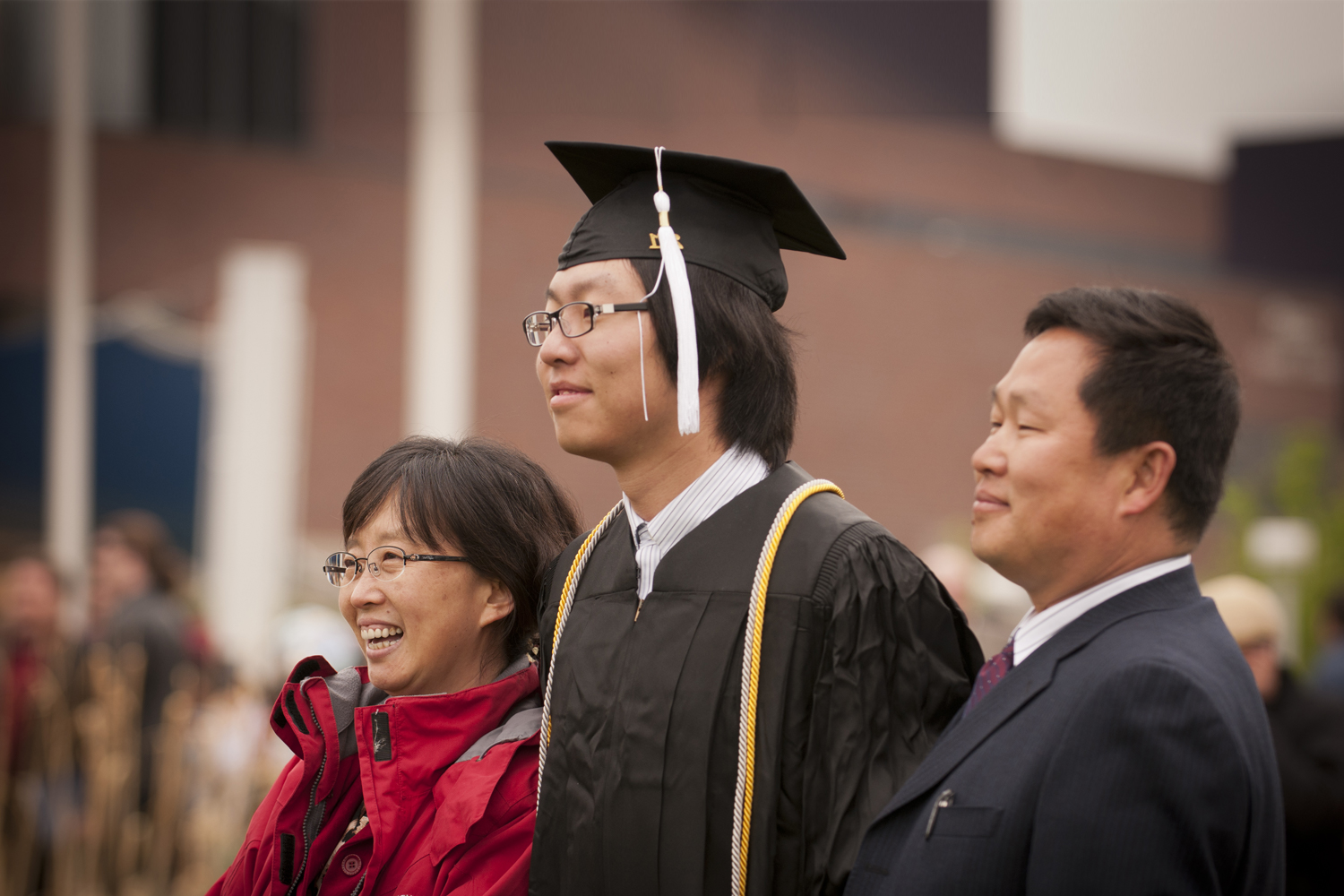Differences Between Chinese & American Education

“My classes were taught in a way that included more discussion and sharing of ideas,” said Wang (Pete) Yukun, a student at the University of Colorado Denver who was earning a bachelor of science in electrical engineering. He was also taking advantage of the university’s English as a Second Language (ESL) Academy to hone his writing and presentation skills in English. In comparing his education in his home country of China with that of his college experiences in the United States, Pete further explained that the American classroom’s learning environment was “more relaxed but still respectful.”
Many educators and parents recognize the importance of a Chinese education in structuring a strong foundation for students. They also view an American college education as valuable in cultivating a student’s creativity and critical thinking.
Memorization of vast amounts of information is crucial for students’ test-taking and their subsequent overall evaluation in China. In the U.S., content memorization is one part of a student’s evaluation, which can also include presentations, research papers, or a team project. Precision and information retention are key to a Chinese education; independence and concept development are integral to an American education.
Communicating one’s ideas effectively, working with a team, and gaining experiential learning also factor into a student’s success in the U.S.
Yang (Brandon) Zhou, a graduate student in civil engineering, had the opportunity to work on an innovative project between CU Denver’s College of Engineering, Design, and Computing, and the City and County of Denver. He and his classmates were able to team with an engineering company, contribute their ideas, and have professional level learning experiences.
“There’s value to learning in an urban environment in the United States,” said Brandon. “Studying at CU Denver led me to potential contacts in the engineering industry and to my job. You can take that knowledge and experience with you and work in your home country and in other countries.”
Weiji (Payton) Wu, Senior Director for China Initiatives in the Office of International Affairs (OIA), University of Colorado Denver | Anschutz Medical Campus, has first-hand knowledge of the benefits of higher education in both China and the U.S. – and of the complementary benefits that a joint partnership provides to students. In collaboration with Alana Jones, Associate Vice Chancellor, Dean Pamela Jansma/College of Liberal Arts and Sciences, faculty, and staff in both Beijing and Denver, plans are underway to celebrate a significant milestone in 2024. The year marks the 30th Anniversary of International College Beijing (ICB), a successful partnership between the University of Colorado Denver and China Agricultural University.
The first partnership of its kind in China, ICB offers classes to Chinese students in China and Colorado. Chinese students can earn undergraduate degrees in economics and communication or a dual degree from the University of Colorado Denver.
“Studying in a different country enables students to learn how people in other cultures think, how to approach problem-solving from other perspectives, and how diverse teams can operate effectively,” said Payton. “It’s important for business.”
He also commented on other student benefits. “The cost of living in Denver is reasonable; there’s affordable housing and excellent healthcare for international students enrolled at CU Denver | Anschutz.” He added, “Good quality of life is possible—a balanced lifestyle with time for dedicated study and work as well as time for relaxation and recreation.”
Personalized attention and advising support students throughout their educational journey. “ICB students in Beijing are reaching out to me as they’re planning to come to Denver,” explained Jingxuan (Jasmine) Mo, International Services Specialist in OIA. Jasmine provides students with a thorough checklist detailing all of the documents needed to apply for an I-20 and practical information about the process. “In addition to emails, I schedule Zoom meetings with the students in China, so we can discuss things directly; this works well and I enjoy communicating with the students in both Beijing and Denver.” Upon arrival in Denver, academic advisors and faculty meet with the students to give academic guidance; and an International Student reception is held during CU Denver’s Welcome Week with CU Denver 101 & Academic Success presentations.
Both China and the U.S. have distinguished educational systems. In partnership, they can foster the skills that prepare learners to contribute to shaping productive futures for their societies. Whether students come through a partnership program or through their own individualized educational plan, they will broaden their academic and career horizons at CU Denver.
Learn more at:
Office of International Affairs
International Student & Scholar Services
UPDATES
International College Beijing
-

Year-Round Events Enjoyed By ICB Students
Aug 31, 2023Throughout 2023, ICB students are continuing to join in the fun of indoor and outdoor events hosted by the Office of International Affairs (OIA) and CU Denver. In the spring, two hundred thirty students, staff, faculty, and friends recognized the Lunar New Year at an event presented by OIA, the Asian Students Association (ASA), and the Intercultural Club Beijing. The Club’s members act as consultants for International College Beijing (ICB), both for American CU Denver students going to Beijing on study abroad programs and Chinese students coming to CU Denver.... read moreFull story -

Spring in Denver
Apr 22, 2022Spring has arrived in Denver! Blue skies and clean mountain air make it easy for an ICB student to take a study break and step outside for a refreshing walk or bike ride.Full story -

Employment & Learning Opportunities at CU Denver
Apr 22, 2022In the Office of International Affairs, ICB student assistants have helped by providing guidance to other international students about the steps needed for application and admission into the university, and supplying information about visas and immigration processes, travel updates.Full story -

Art Exhibit Inspires Imagination & Critical Thinking Skills
Jan 6, 2022The ICB students found creative inspiration on a visit to the Spectra Art Space, hosted by the Office of International Affairs, where they particularly enjoyed the Nova Ita exhibit.Full story





